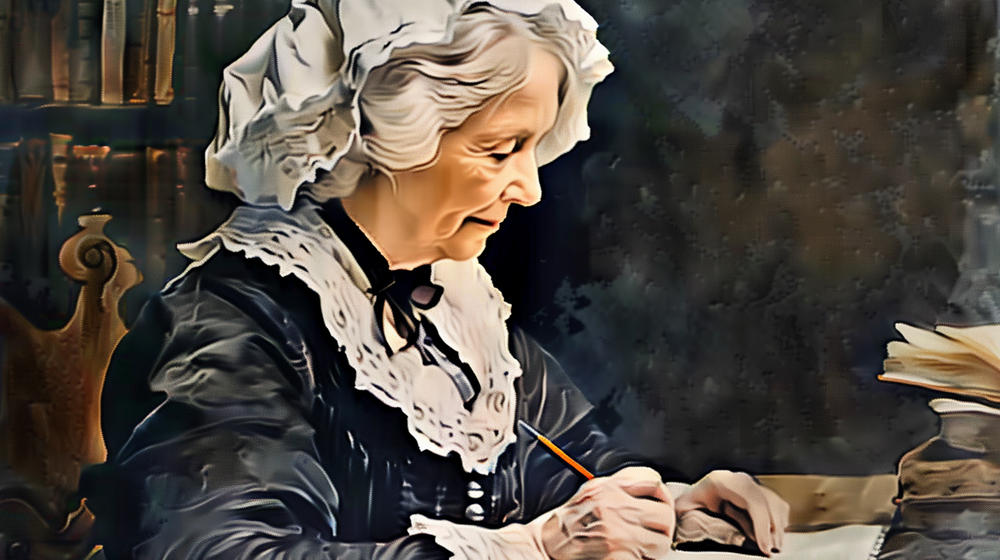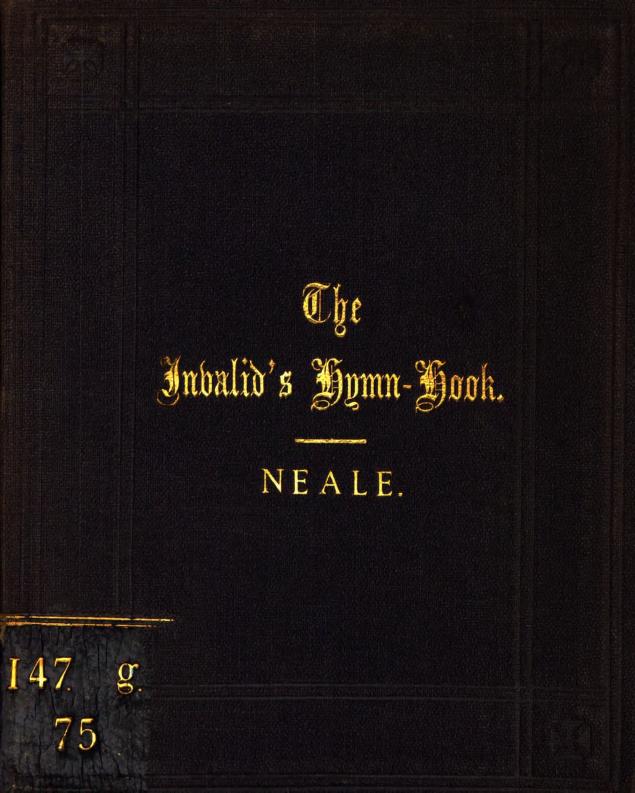Born: March 18, 1789, Clapham, Surrey, England.
Died: September 22, 1871, Brighton, East Sussex, England.
Buried: St. Andrew’s Church, Hove, Sussex, England.
Charlotte Elliott

Hymns by Charlotte Elliott
People Also Ask:
What religion was Charlotte Elliott?
Charlotte Elliott was a devoted Anglican Christian, born into a family steeped in the evangelical tradition of the Church of England. Her faith, deepened through personal struggles and a transformative conversion experience, inspired her to write numerous hymns that reflect core Protestant beliefs.
What is the meaning of just as I am without one plea?
“Just As I Am, Without One Plea” expresses the Christian belief that God accepts us as we are, based solely on Christ’s sacrifice rather than our own merits. The hymn emphasizes that we come to God in our brokenness, without any defense or justification of our own, trusting entirely in His mercy and love.
In the bustling world of 1789, as the French Revolution was about to shake Europe to its core, Charlotte Elliott was born at Westfield Lodge, Brighton, on March 18th. In the Elliott household, a haven for traveling preachers and evangelical luminaries, an unexpected encounter was about to change the course of Christian hymnody forever. Born into a family of profound spiritual influence – her father Charles Elliott was a silk merchant with deep faith, and her mother Eling was the daughter of the renowned Rev. Henry Venn – Charlotte’s early years were steeped in evangelical thought and reform movements. Her grandfather Venn, a prominent figure in the Clapham Sect, had authored The Complete Duty of Man (1763) and was instrumental in the Great Awakening of the 18th century among British churches.
Growing up in Clapham, a village near London that served as a hub for evangelical thought and social reform, young Charlotte developed numerous talents. She became accomplished as a portrait artist and gained recognition for her witty, humorous verse. These early years were marked by vivacity and promise, as she moved within highly cultured circles where her quick mind and artistic gifts found ready appreciation.
It was the summer of 1822, and Charlotte Elliott, now 33 and living with her brother in Brighton, found her world about to shift on its axis. The previous year had brought a severe illness that would leave her an invalid for the rest of her life, transforming her from an active, social young woman into one often confined to her room. Yet even in this diminished state, her family’s commitment to evangelical hospitality remained unchanged.
The Divine Appointment: Meeting Dr. Malan
Charlotte’s father, continuing the family’s tradition of spiritual fellowship, had long made it his practice to welcome God’s servants into their home. On this particular evening, the guest was Dr. César Malan, a Swiss evangelist whose reputation for spiritual insight preceded him. Little did anyone suspect that this visit would not only transform Charlotte’s life but also birth a hymn that would touch millions.
As the golden light of evening filtered through the windows of the sun-drenched parlor, Charlotte, wrestling with the physical pain and emotional weight of her year-old invalidism, found herself face-to-face with Dr. Malan. The conversation that followed would shatter her carefully constructed walls and set her on a path to compose one of Christianity’s most beloved hymns.
Dr. Malan, his eyes kind but penetrating, posed a question that pierced straight to Charlotte’s heart: “My dear, do you consider yourself a Christian?”
The words hung in the air, heavy with implication. Charlotte, her face flushed with indignation, snapped back that she had no desire to discuss religion. The pain that wracked her body daily had hardened her heart, and she wore her irritability like armor.
But Dr. Malan, undeterred by her sharp response, simply smiled and said he would pray for her. In a letter dated May 18, 1822, he would later write to her, “Dear Charlotte, cut the cable, it will take too long to unloose it; cut it, it is a small loss; the wind blows and the ocean is before you – the Spirit of God and eternity.” Little did he know that his gentle persistence would plant a seed that would grow into one of the most beloved hymns in history.
For days after the encounter, Charlotte found herself in spiritual turmoil. The facade of her pride crumbled, revealing a soul desperately longing for peace. The next time they spoke, Charlotte’s demeanor had dramatically shifted. She apologized for her previous behavior, confessing that Dr. Malan’s question had troubled her deeply.
“I am miserable,” she admitted, her voice barely above a whisper. “I want to be saved. I want to come to Jesus, but I don’t know how.”
Dr. Malan’s response was beautifully simple: “Why not come just as you are?”
Those five words would echo through the ages, touching countless hearts. For Charlotte, they were the key that unlocked the door to faith. She embraced Christ that day, May 9th, 1822 – a date she would celebrate as her spiritual birthday for the rest of her life. She came not as a polished, perfect believer, but as a broken, needy sinner.
A Life of Illness and Perseverance
What followed was a journey of both physical trial and spiritual triumph. Her health improved briefly during a visit to Normandy in 1823, but by 1829 she had become an almost helpless sufferer once again, with only occasional intervals of relief. Yet in these years of confinement, Charlotte’s faith deepened, and her pen became increasingly active.
Years later, remembering that pivotal moment with Dr. Malan, Charlotte would pen the words that would become her lasting legacy: “Just as I am, without one plea, but that Thy blood was shed for me…” A hymn born from personal struggle, destined to bring comfort to millions around the world.
A Literary Ministry Begins
The 1830s marked the beginning of Charlotte’s most productive period, though they were also years of profound loss. In 1833, her beloved father passed away. Rather than succumbing to grief, she channeled her energy into writing and editing. In 1834, she took over the editorial supervision of The Christian Remembrancer Pocket Book, an Annual which she would edit for the next 25 years. By 1836, she had also assumed responsibility for The Invalid’s Hymn Book, taking over from her friend Harriet Kiernan, who was in the final stages of consumption.
Miss Elliott once wrote, “He knows, and He alone, what it is, day after day, hour after hour, to fight against bodily feelings of almost overpowering weakness, languor and exhaustion, to resolve not to yield to slothfulness, depression and instability, such as the body causes me to long to indulge, but to rise every morning determined to take for my motto, ‘If a man will come after Me, let him deny himself, take up his cross daily, and follow Me.’”
Through her suffering, Charlotte found her greatest ministry. Unable to attend public worship in her later years, she wrote, “My Bible is my church. It is always open, and there is my High Priest ever waiting to receive me. There I have my confessional, my thanksgiving, my psalm of praise, and a congregation of whom the world is not worthy – prophets, and apostles, and martyrs, and confessors; in short, all I can want I find there.”

The Birth of “Just As I Am”
In 1836, while her family was busy preparing for a bazaar to raise funds for St. Mary’s Hall, a school her brother Henry had founded for clergymen’s daughters, Charlotte lay in her room, unable to help. Feeling useless and discouraged, she remembered Dr. Malan’s words from fourteen years before. Taking up her pen, she wrote the verses that would become her most famous hymn:
Just as I am, without one plea
But that Thy blood was shed for me,
And that Thou bidd’st me come to Thee,
O Lamb of God, I come!Just as I am, and waiting not
To rid my soul of one dark blot,
To Thee whose blood can cleanse each spot,
O Lamb of God, I come!
The hymn first appeared in The Invalid’s Hymn Book in 1836, paired with the scripture “Him that cometh to Me I will in no wise cast out.” Within years, it had been translated into almost every European language and spread to distant lands. William B. Bradbury would later compose its familiar tune in 1849, giving wings to words that would touch countless souls.
Years of Loss and Legacy
The 1840s brought waves of grief as Charlotte lost her mother in April 1843, followed shortly by two of her sisters. In 1845, she and her surviving sister Eleanor moved to Torquay, where they would remain for fourteen years before returning to Brighton. Despite these losses, Charlotte’s pen never ceased its ministry. She continued to write and publish, including Morning and Evening Hymns for a Week (privately printed in 1837, published in 1842) and Hours of Sorrow Cheered and Comforted (1836).
Miss Elliott’s love of poetry and music was great and reflected in her verse. Over the years, she wrote approximately 150 hymns and many poems, most published anonymously. Among them were “My God, My Father, While I Stray” (1834), “Christian, Seek Not Yet Repose,” and “O Holy Saviour, Friend Unseen.” Her work is characterized by tenderness of feeling, plaintive simplicity, and perfect rhythm. For those in sickness and sorrow, she has sung as few others have done.
After her brother Henry’s death in 1863, the same year she published her volume of poems, Charlotte ventured from home only once more – a brief stay in a neighboring village in 1867. In 1869, she faced a severe illness but rallied slightly. Her final years were spent in Brighton, where she continued to write and correspond with those who had been touched by her hymns.
Charlotte Elliott passed away on September 22, 1871, at 10 Norfolk Terrace, Brighton, at the age of 82. She was buried alongside her brothers in the churchyard of St. Andrew’s, Hove. After her death, over 1,000 letters were found among her papers from people around the world, telling how her hymn “Just As I Am” had touched their lives. Her brother Henry had once said, “In the course of a long ministry, I hope to have been permitted to see some fruit of my labours; but I feel far more has been done by a single hymn of my sister’s.”
As evangelist Billy Graham would later note, his ministry used “Just As I Am” in almost every crusade, finding it presented “the strongest possible Biblical basis for the call of Christ.” The hymn that Charlotte Elliott wrote in her weakness became, in the words of hymnologist Kenneth Osbeck, a song that “touched more hearts and influenced more people for Christ than any other song ever written” – truly, as Lorella Rouster observed, “an amazing legacy for an invalid woman who suffered from depression and felt useless to God’s service.”
Through every trial, Charlotte maintained her faith in God’s purpose. “God sees, God guides, God guards me,” she wrote. “His grace surrounds me, and His voice continually bids me to be happy and holy in His service just as I am.”


